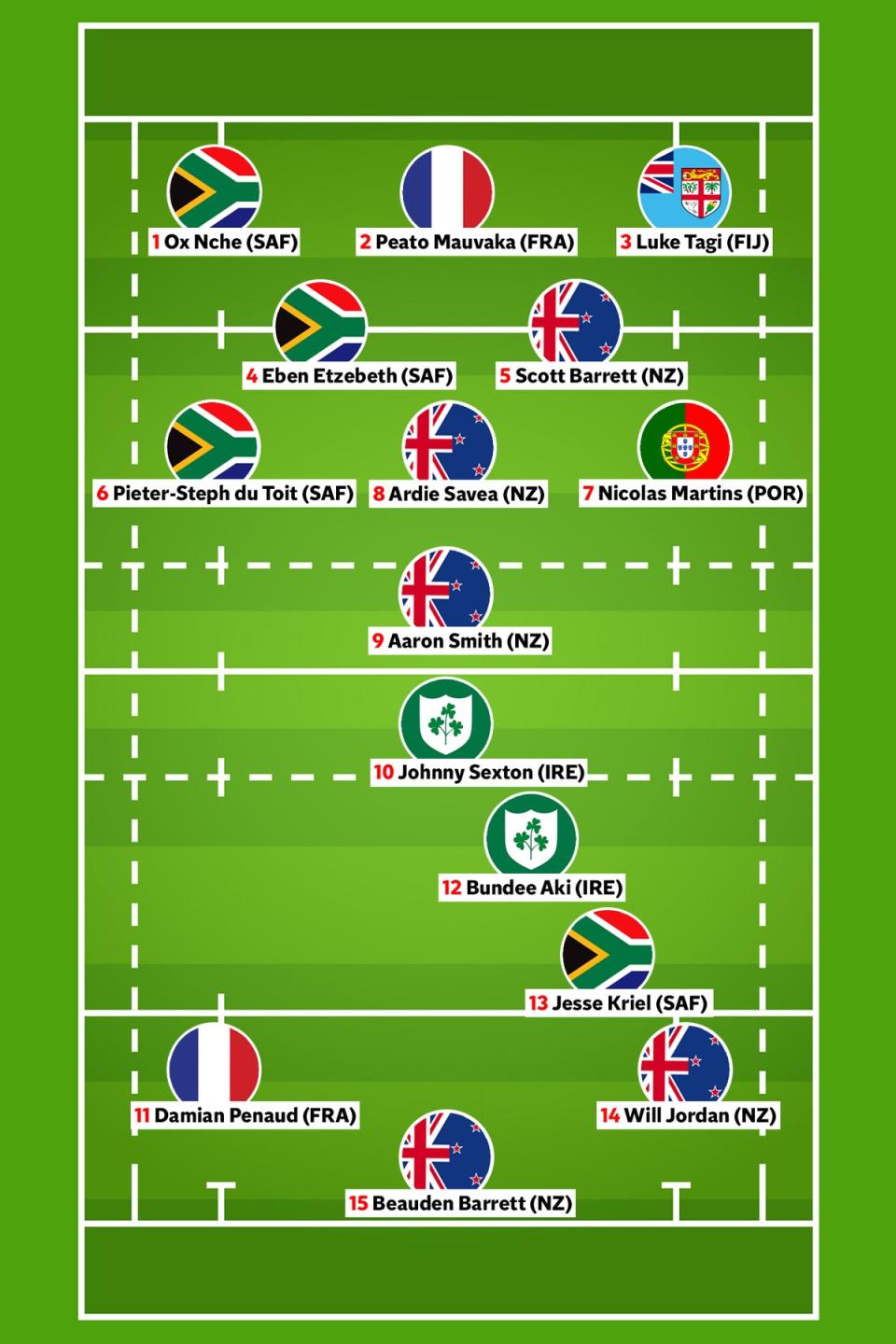Rugby World Cup team of the tournament: Who makes our XV?

The Rugby World Cup is at an end with South Africa securing back-to-back triumphs.
The Springboks edged a hard-fought final against New Zealand, holding on in the final moments to close out a third successive one-point win in the knockout rounds.
They were a number of individual stars in the squads of both finalists, and a handful of Springboks and All Blacks make our composite team at the close of a competitive and compelling World Cup.
But a campaign that highlighted the breadth and depth of the sport also brought some lesser known faces into consideration.
Who earns selection in The Independent’s team of the tournament? Find out below:
Loosehead prop: Ox Nche, South Africa
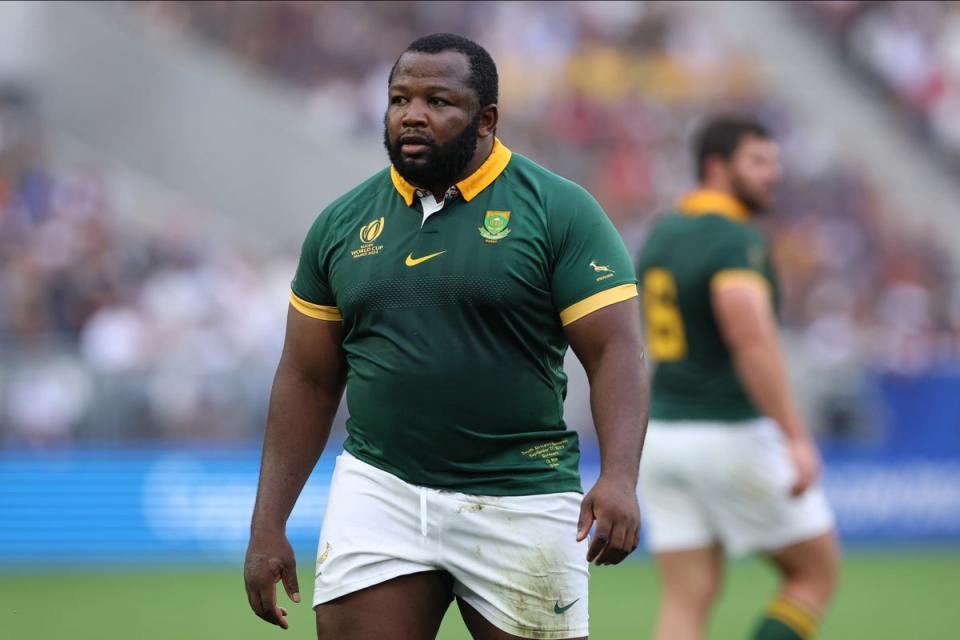
The cornerstone of South Africa’s bench bomb squad, Ox Nche’s introduction swung the semi-final against England in a string of impactful performances as a prop replacement. Angus Bell was the bright spot in a tough tournament for Australia, while if Argentina’s Thomas Gallo can add a bit more prowess in the tight to his dynamic running game he will be a prop star.
Hooker: Peato Mauvaka, France
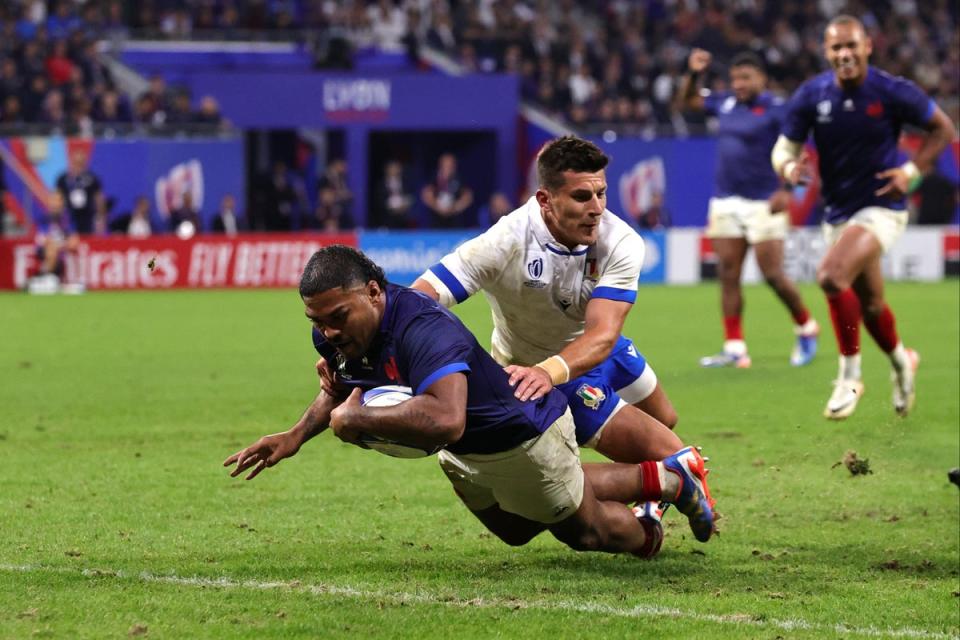
A breakout tournament for the France hooker, showing off his ridiculous physical gifts but also emerging as a consistent nuts-and-bolts front rower after the injury to Julien Marchand. Bongi Mbonambi wasn’t far away, and a word for Jamie George, too, who had to shoulder plenty of load in England’s front row.
Tighthead prop: Luke Tagi, Fiji
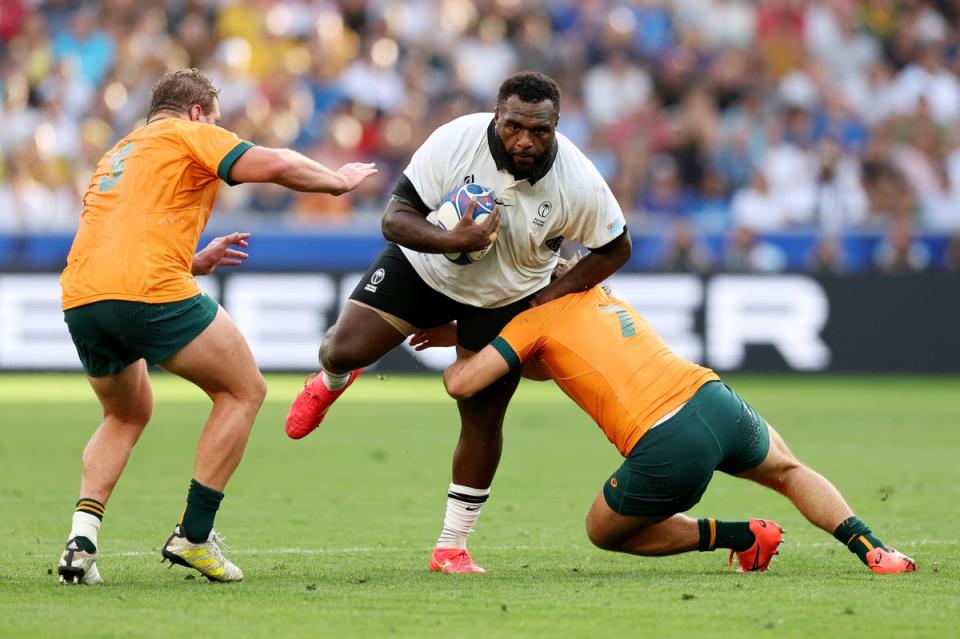
Tonga’s Ben Tameifuna was an unsung hero of the pool stages and Tyrel Lomax (New Zealand) will be pleased with his tournament, but Fiji’s Luke Tagi gets our nod on the tighthead. His ability to anchor at scrum-time has solidified the set piece while Tagi was an ever-willing and destructive carrier across the park.
Lock: Eben Etzebeth, South Africa
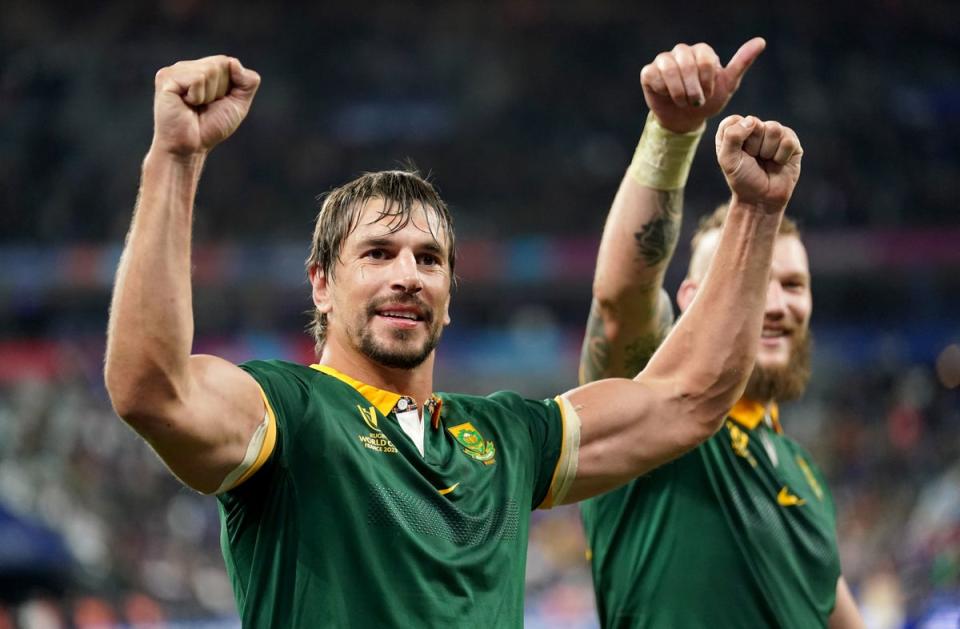
It’s impossible to leave out the Cape Town colossus, immense in the quarter-final against France. The lock sets a physical tone but, unlike the Springbok enforcers of old, almost always plays within the bounds of the law. Teammates RG Snyman and Franco Mostert also went well.
Lock: Scott Barrett, New Zealand

All three Barrett brothers were in contention for our composite selection, which says everything about a remarkable set of siblings. Scott simply does not have a weakness to his game, and now steps up to lead the All Blacks’ engine room with both Brodie Retallick and Sam Whitelock bowing out.
Blindside flanker: Pieter-Steph du Toit, South Africa
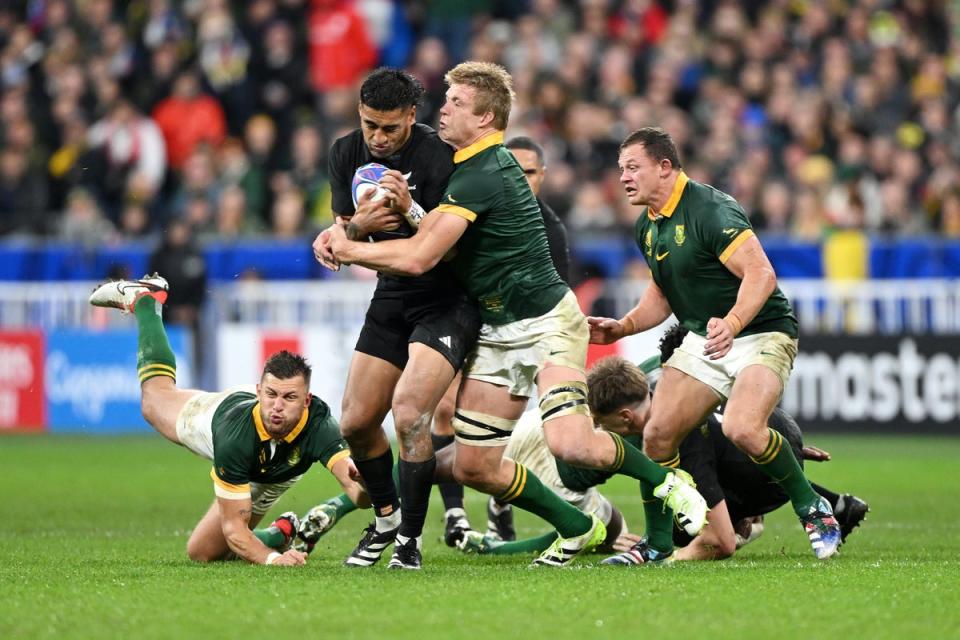
Big game player; big game hunter. 28 tackles in the final from Pieter-Steph du Toit, many of them monstrous, to complete another outstanding World Cup. Courtney Lawes is unfortunate to miss out and, though very different stylistically, Manuel Ardao was one of Uruguay’s best.
Openside flanker: Nicolas Martins, Portugal

We are spoilt for choice on the openside, with all of Jac Morgan, Levani Botia, Marcos Kremer and Siya Kolisi meriting consideration. But let’s give some love to Portugal and the outstanding Nicolas Martins, who was excellent in all facets throughout. Despite not featuring in the knockout rounds, Martins finished as the seventh top tackler at the tournament and combines lineout spring with more traditional openside ability.
No 8: Ardie Savea, New Zealand
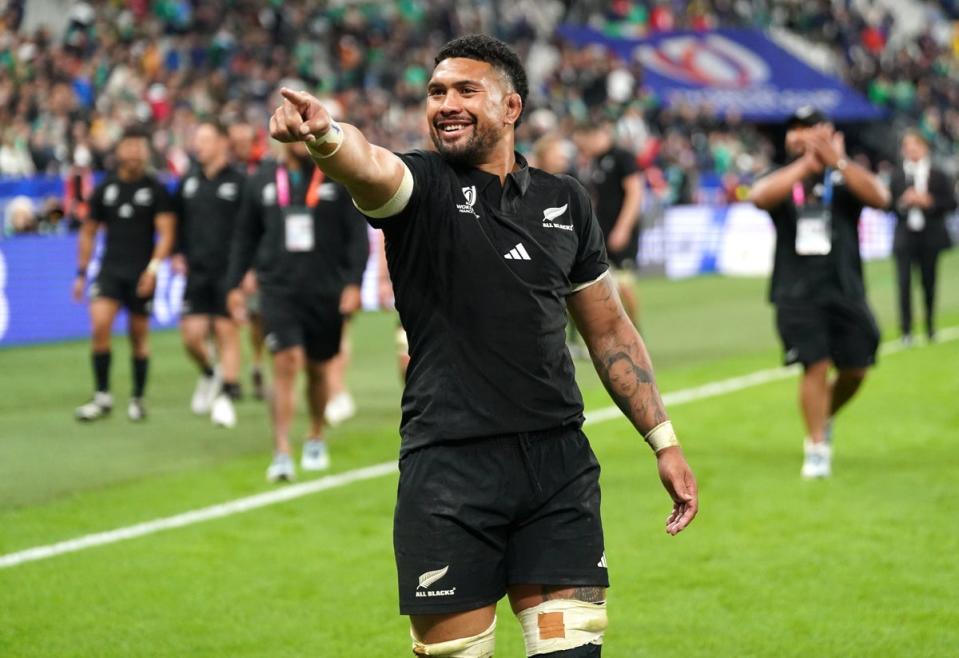
Ben Earl came close having been probably England’s most consistent player across the campaign and both Gregory Alldritt and Caelan Doris would have been in the mix had their sides gone further, but Ardie Savea was a level above the rest of the No 8 field. A blockbuster ball carrier, savvy scavenger and increasingly important leader – Savea can do it all, even if South Africa so impressively shut him down in the final.
Scrum half: Aaron Smith, New Zealand
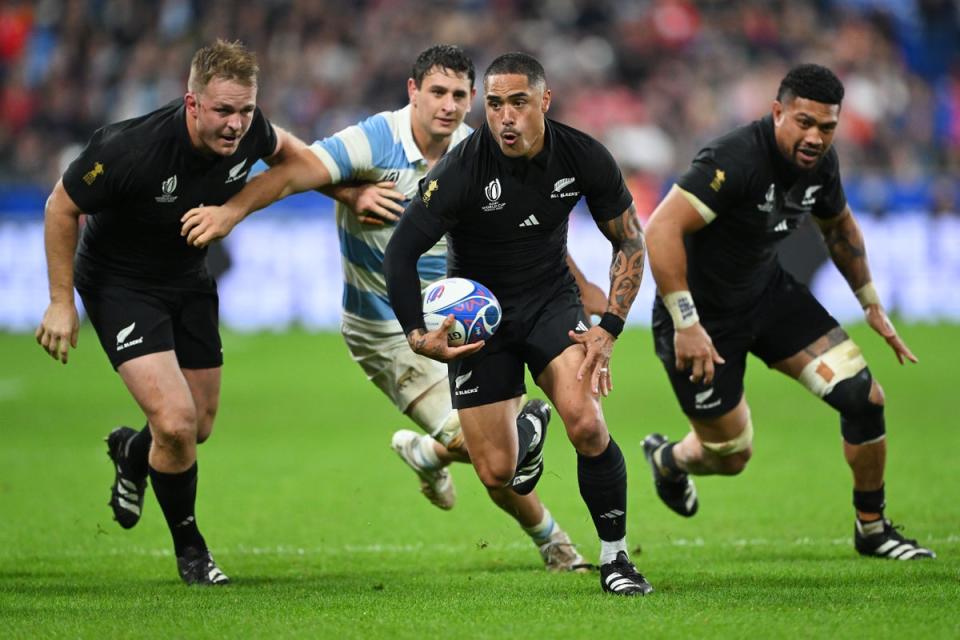
There was no fairytale ending to his All Blacks career for the retiring No 9, who endured not only a heartbreaking one-point defeat in his 125th and final Test appearance but also saw his second-half try chalked off by the TMO for an earlier Savea knock on. Had an immense tournament however, as he got the New Zealand backline firing after concerns during the World Cup cycle – brilliantly managing them to victory in the quarter-final win over Ireland especially. A huge ask of a scrum half succession line featuring Finlay Christie and talented but raw Cam Roigard to replace him.
Fly half: Johnny Sexton, Ireland
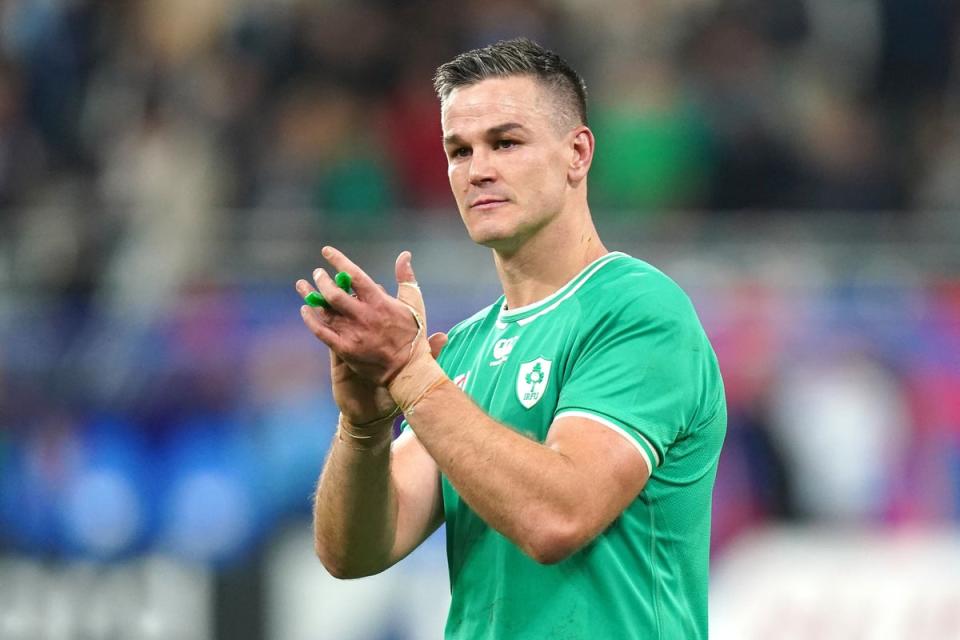
Another retiring legend who didn’t quite get the finish he wanted but showed he hadn’t lost a step at the end of his career. Flawless from the tee and still the best game manager in the world at 10, as proven by masterminding the pool-stage win over South Africa – the greatest World Cup victory in Ireland’s history (a slightly depressing thought in itself). Drove standards in the Irish camp until the end, making everyone around him better and it was fitting that even in the final seconds of his Test career, he was still running the fly half wraparound that he has perfected over the years, albeit this time to no avail. Richie Mo’unga (New Zealand) just misses out on the spot here.
Wing: Damian Penaud, France
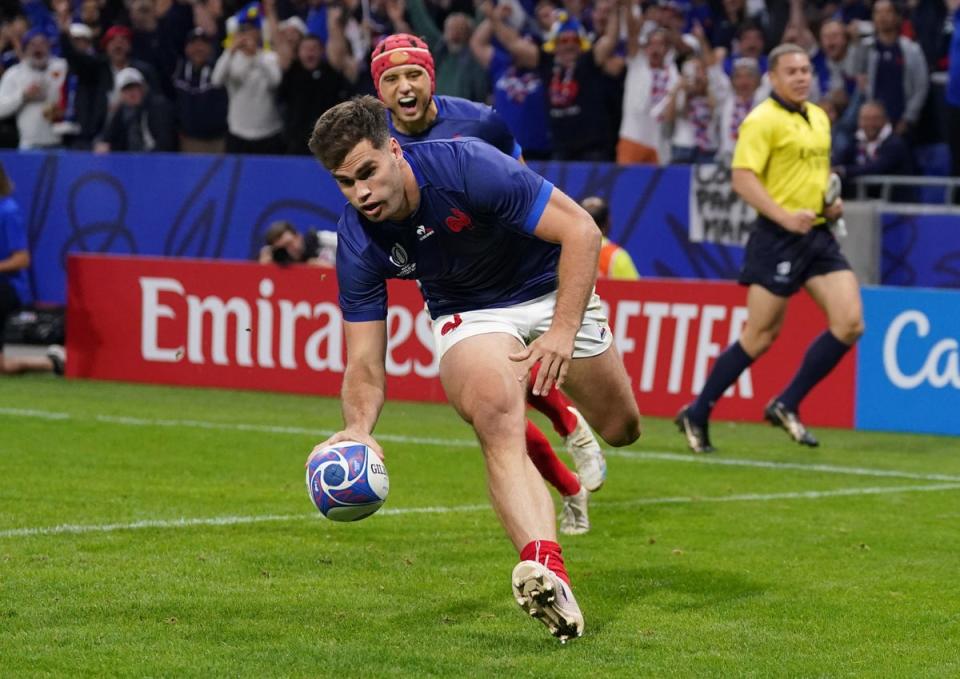
Penaud’s ascent to be the most complete winger in world rugby was finished before the World Cup but this tournament just cemented that fact. While his young running mate Louis Bielle-Barrey was exposed by the Springboks’ inspired kicking game in the quarter-finals, Penaud’s ability to read the game, position himself correctly and then return kicks in kind kept Les Bleus in the contest. His running with ball in hand and attacking vision proved to be almost unstoppable and his finishing prowess is equally unquestioned, as shown by the six tries he helped himself to across the World Cup.
Inside centre: Bundee Aki, Ireland
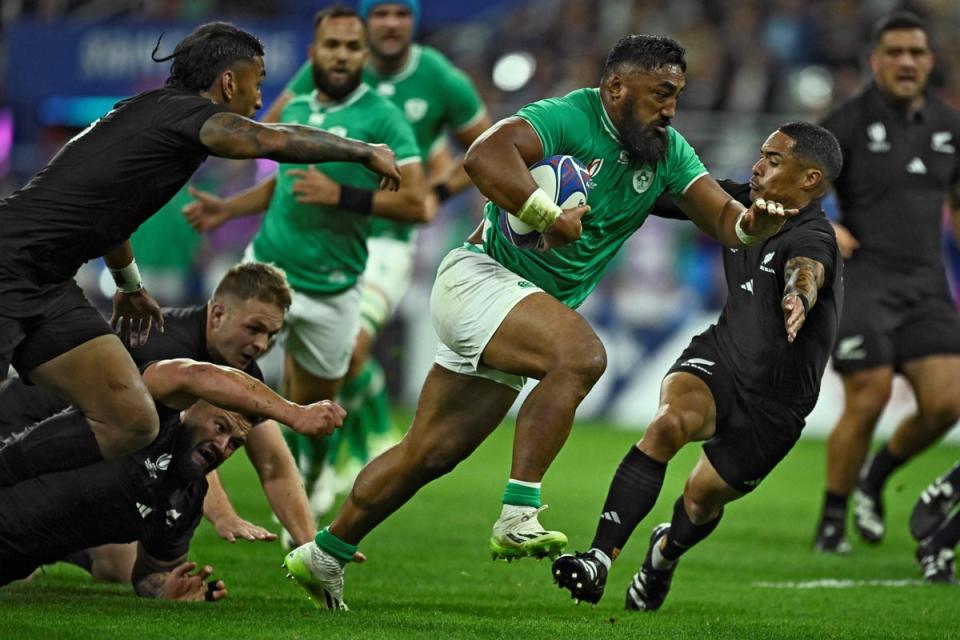
Damian de Allende and especially Jordie Barrett, who was the puzzle piece that unlocked the All Blacks backline, are unlucky to miss out but Bundee Aki was simply astonishing at inside centre and was the Player of the Tournament up until his quarter-final departure. At that point, he topped the tournament rankings for carries, dominant carries and defenders beaten, while also leading the Irish charts for offloads and line-breaks. His absurdly powerful carrying gave Ireland continuous front-foot, quick ball and he showed his flair with a superb try against New Zealand, jinking inside two defenders despite being off-balance, fending off another and powering through a gap to score. Was similarly an absolute monster in defence.
Outside centre: Jesse Kriel, South Africa
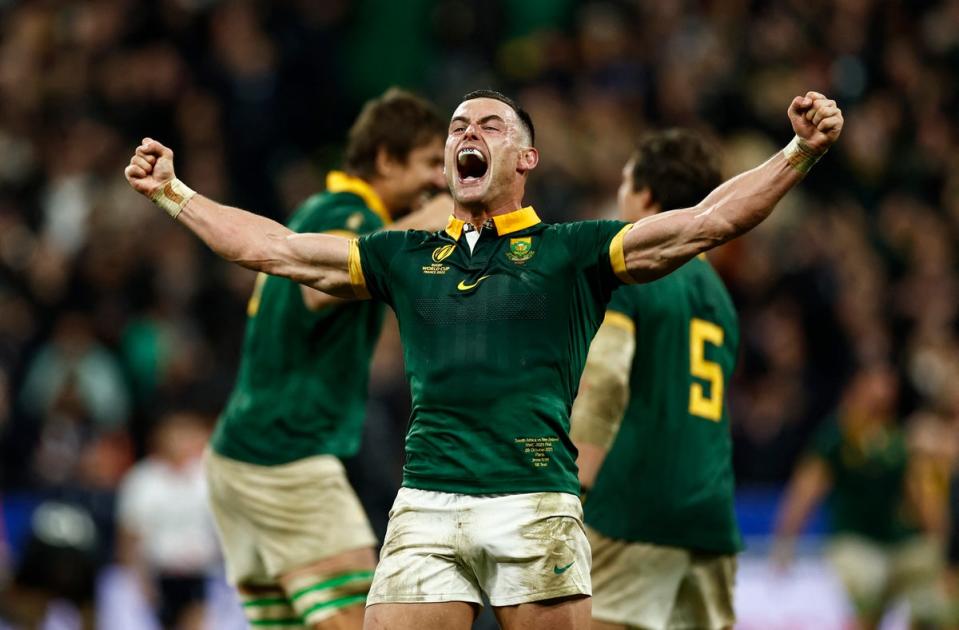
The picture of a bloody and bruised Kriel, grinning away after the quarter-final win over France may well sum up the Springboks' entire campaign. He was superb in that game, making 13 tackles as the brick wall at the heart of the South African defence and was a tone-setter for their famed physicality throughout the tournament. He also showed his attacking prowess with a precise grubber kick through for Cheslin Kolbe's try and early-tournament talk about Lukhanyo Am returning from injury to reclaim the No 13 jersey for the big games soon faded thanks to Kriel's vice-like grip on the shirt.
Wing: Will Jordan, New Zealand
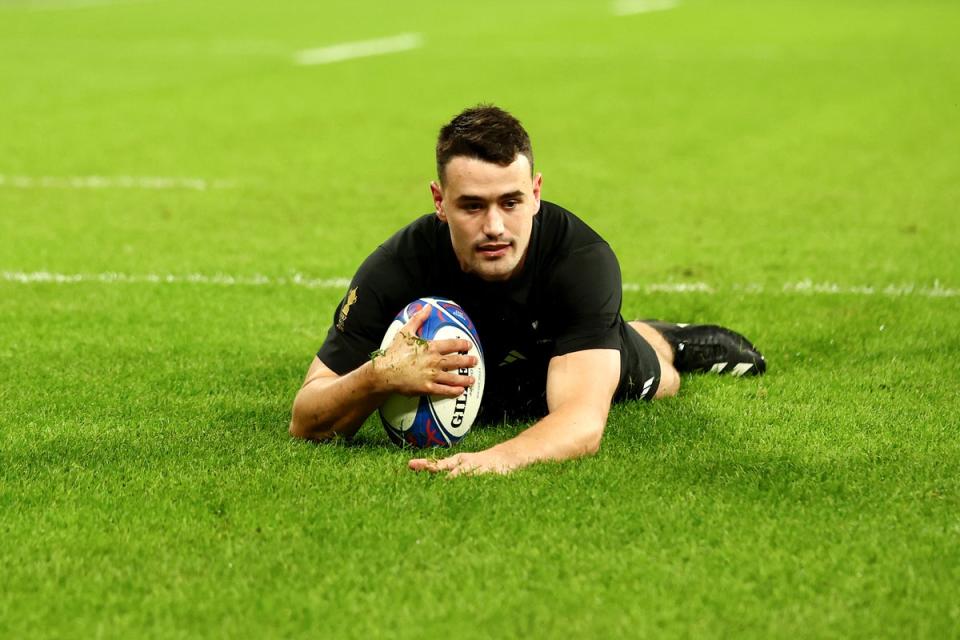
The final may not have been his best game, with limited touches and having his lunch money taken in a tackle by a Cheslin Kolbe-Kwagga Smith combination, but you don’t equal the all-time try-scoring record at a World Cup and not get into the team of the tournament. The best, most electric finisher in world rugby who can score from anywhere in any way. The semi-final hat-trick against Argentina brought him level with Jonah Lomu, Bryan Habana and Julian Savea for eight in a single tournament and his third try showed his class – starting in his own 22, Jordan weaved between three defenders, then chipped over another on halfway before collecting his own kick to race in for the score. Argentina’s Emiliano Boffelli and Ireland’s James Lowe also had good tournaments.
Full back: Beauden Barrett, New Zealand
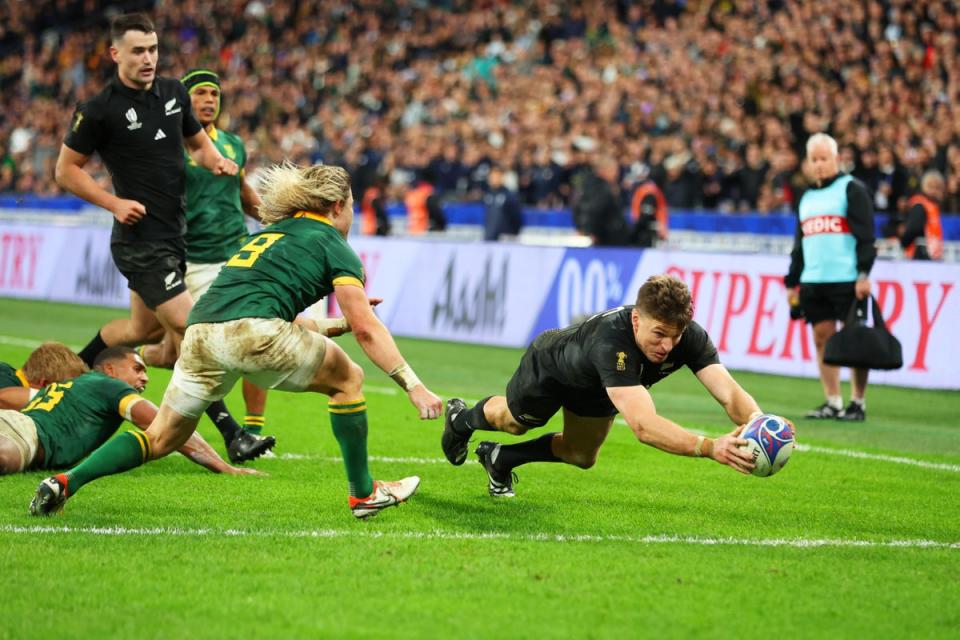
Our second Barrett brother in the team and, but for Bundee Aki, Jordie would have made it a clean sweep for rugby’s premier family. Beauden’s switch to 15 during this cycle proved inspired, allowing the Mo’unga-Jordie axis to thrive at 10 and 12 while also giving him the freedom and time at full back to show why he’s the best, and most inventive, kicker from hand on the planet. His array of chips, dinks and grubbers to exploit space and launch attacks were a joy to watch and bamboozled Ireland and Argentina in particular, while he also became the first man to score two tries in men’s Rugby World Cup finals as he crossed the whitewash in defeat to South Africa to add to his 2015 effort. Hugo Keenan played well for Ireland and whichever of Freddie Steward or Marcus Smith was selected in the No 15 shirt for England excelled in their brief for that particular game but Barrett was a cut above.
